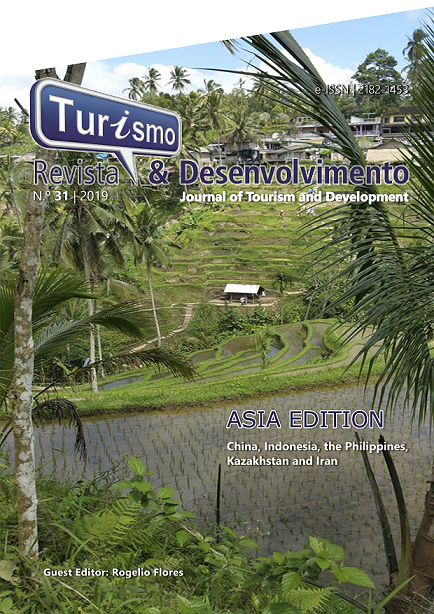Tourism Quality of Life (TQOL) and local residents’ attitudes towards tourism development in Sagada, Philippines
Resumo
One of the relevant resolutions of tourism development in a destination is to improve the quality of life (QOL) of the host community. In the tourism literature, QOL has discoursed in the research of residents' attitudes towards tourism. However, limited studies have directly examined residents' perceptions of QOL in the context of tourism development. This study aims to assess tourism's inuences on resident community's QOL and therefore develops the tourism-related community quality of life (TCQOL) approach. TCQOL denotes residents' perceptions of community quality of being inuenced by tourism and includes six dimensions of community: well-being, urban issues, way of life, community pride and awareness, natural/cultural preservation and recreation amenities - which are inuenced mostly by tourism development. The indicators of TCQOL are developed from extant community quality of life literature and tourism impacts study. The measuring approach incorporates residents' perceptions of satisfaction, importance and tourism eects on selected indicators. This approach could be a valuable tool for tourism practitioners and scholars to recognize residents' perceptions of community QOL, assess changes of residents' perceived community QOL in a host community, and compare the community QOL experiences to other areas. A signicant output of the study would be the proposed intervention measures in addressing the impact of tourism development that may provide better quality of life to the host residents.





